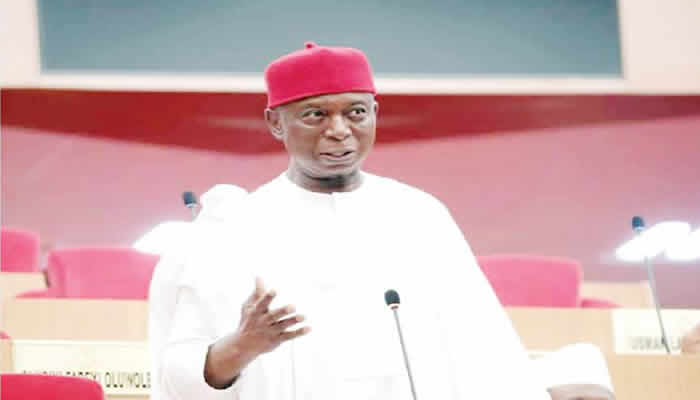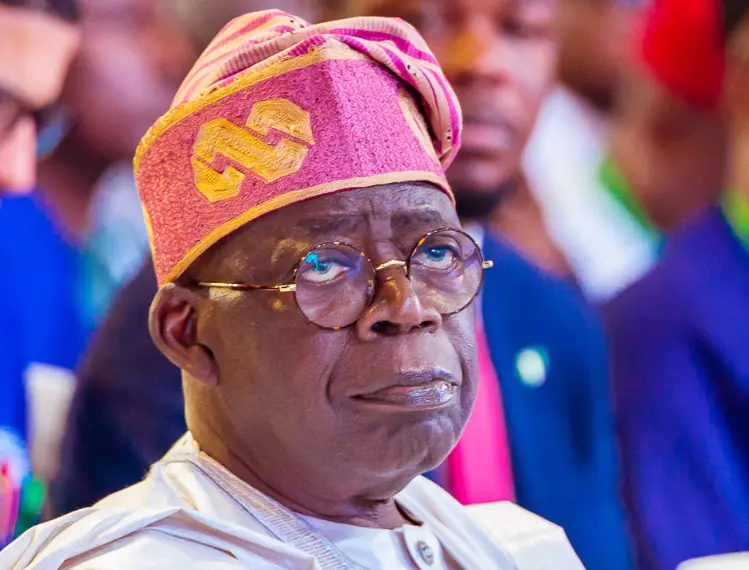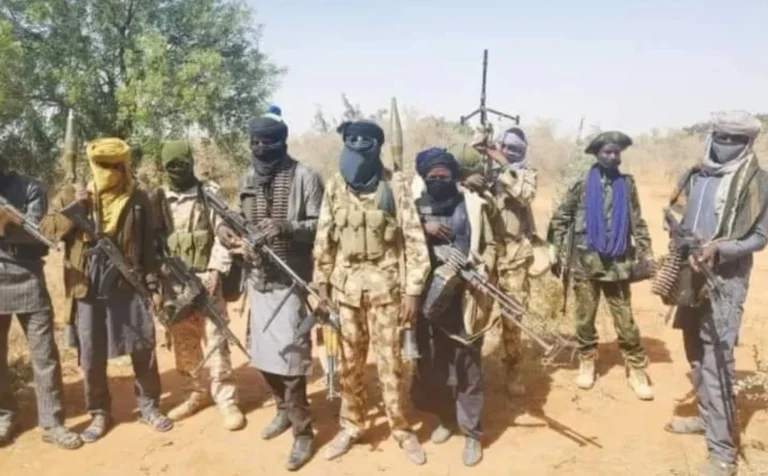
Sitting quietly atop one of Nigeria’s richest oil and gas belts, the Anioma region in Delta North is emerging as a powerful voice in the debate over state creation. The push for Anioma State is gaining renewed urgency, writes JUWE OLUWAFEMI
Beneath the rolling farmlands and quiet towns of Delta North lies an economic revelation that could reshape the debate over state creation in Nigeria. Long overlooked and politically sidelined, Anioma land, an area rich in culture and resources, is sitting atop what could become Nigeria’s fifth-largest oil and gas reserve.
From the serene groves of Utagba to the bustling power lines of Okpai, a silent revolution is bubbling beneath Anioma land in Delta North. While some still question the economic viability of carving out an Anioma State, recent research suggests that the region isn’t just viable. It is a potential game-changer.
According to Frank Iroroh, while reporting on a comprehensive study by Osita Mordi, a Germany-based oil economist of Anioma extraction, the area currently sits atop what could become the fifth largest oil and gas reserve in Nigeria. With over 200,000 bpd already being pumped from the earth and massive untapped gas fields, Anioma’s wealth is real, present, and largely uncredited.
“Anioma is no longer begging to be made a state,” said Fidelis Dike, 84-year-old from Akwu Quarters in Ubukukwu. “It is an economic injustice for such a resource-rich region to remain politically marginalised.”
Beneath the surface
Anioma’s oil fields, primarily spread across Ndokwa East, Ndokwa West, Ukwuani, Ika South, and Oshimili North, are divided into developed and undeveloped categories. In the developed category, we find Okpai, Kwale, Beneku, Ashaka, Umusadege, and Ebendo, among other fields, already producing tens of thousands of barrels of crude each day.
The Umusadege field, operated by a consortium including Midwestern Oil and Canadian firm Mart Resources, is the most prolific, churning out over 12,000bpd, with extensive reserves in gas and condensates.
Meanwhile, the Okpai gas field not only fuels national LNG exports via Bonny Island but also powers a gas turbine plant capable of electrifying the entire South-South region of Nigeria. The Kwale field contributes four per cent of Nigeria’s total gas production, over 50 billion standard cubic feet annually
“People think of oil and gas in the Niger Delta as a Port Harcourt and Warri story. But the real silent contributor is Anioma,” Tony Eluemunor, a journalist, said.
But despite this reality, not all of Anioma’s resources are attributed correctly. In Onyah, an Ndokwa East community, oil fields are controversially credited to Bayelsa due to boundary adjustments dating back to 1976. Similarly, the Obiofu field, straddling Anioma and Rivers State, contributes 17,000 bpd and eight per cent of Nigeria’s total gas production, but none of that is reflected in Anioma’s political standing or infrastructure allocation.
“We live near oil pipelines, but our children walk miles for drinking water,” Dike Chris, a retired Immigration officer from Idoni, said. “Our wealth is flowing elsewhere while our towns remain forgotten.”
Beyond the currently producing wells are dozens of untapped fields. These include the Adofi River in Ossissa, Isheagwu and Nsukwa in Aniocha South, Oko in Oshimili South, and Matsogo in Afor Ndokwa. Collectively, these fields are projected to yield over 50,000 bpd once developed.
There’s also the OPL 206 block, once awarded to late Chief MKO Abiola’s Summit Oil, stretching across five Anioma Local Government Areas. It remains largely dormant, another indication of missed opportunities said Nduka Ifeanyi and energy consultant who noted further that “These fields are ticking economic time bombs. If activated, they could lift Anioma’s GDP beyond 20 Nigerian states.
Anioma’s role in gas future
Perhaps even more striking than the oil story is the gas narrative. Fields like Egbaoma, Obiofu, and Ashaka contain hundreds of billions of standard cubic feet of gas. This gas powers Nigeria’s domestic and export energy systems, yet Anioma hosts no petrochemical industry, no refineries, and no research institutes.
“We give gas; we get nothing. We fuel LNG exports but can’t even power our hospitals during surgeries,” a frustrated Chief Muonye, an ex-Nigerian diplomat from Ugwuashi-Ukwu, said.
But Anioma’s riches are not buried alone. The region is one of Nigeria’s largest producers of garri, banana, pawpaw, and oranges. Anioma fruits dominate markets in Abuja and Onitsha, but poor processing infrastructure means thousands of tonnes of fruit rot each harvest season.
Observers say agro-industrial investment could complement oil revenues and create thousands of jobs.
“What we need are fruit processing plants, cassava-to-ethanol factories, and cold storage chains. We are wasting fortunes in post-harvest losses,” Chris Ani from Issele-Uku, an Abuja based businessman, stated.
Advocates also argue that Anioma State would become a centre for youth and sports development. With rich talent pools in athletics, martial arts, and football, the area has historically fed Delta’s medal haul at national festivals.
“If Anioma becomes a state, we will give the likes of Lagos and Rivers a run for their medals,” Tony Elue, a sports enthusiast and real estate developer from Aboh boasted
Nwoko steps forward
Senator Ned Nwoko has become the face of the Anioma State advocacy. His renewed push rests not on sentiments but on the cold facts of production, resource control, and federal fairness.
“We are not second-class citizens in Delta State,” Nwoko said. “Anioma contributes more oil than Delta Central and Isoko combined. We deserve administrative independence to manage our resources for our people.”
With over five per cent of Nigeria’s daily crude oil and nearly a fifth of its gas, Anioma’s call for statehood is now more than a constitutional debate. It is a test of national fairness. The data is clear, the production is ongoing, and the urgency mounting.
While giving a background to the Ekumeku uprising and how Britain punished Anioma with division and disunity, Pa Dike narrated further that long before Nigeria’s geopolitical chessboard became a battleground for ethnic loyalty and state creation, the Anioma people of present-day Delta State had already paid a steep price for daring to resist colonial rule, adding that, “Today, their fractured identity across multiple local government areas isn’t just a product of administrative design. It is the scar of a war waged in silence: the Ekumeku resistance.
“Though currently grouped into nine Local Government Areas, the Anioma voice remains splintered; a reflection of the political surgery carried out by the British following a protracted anti-colonial campaign that spanned three decades. That campaign, known as the Ekumeku War, remains one of the longest but most under-reported resistances to British imperialism in Nigeria.
But were the Anioma people simply victims of imperial arrogance, or did their defiance write them into the black book of colonial planners? In the 1980s, during the stormy deliberations that led to the balkanisation of the old Bendel State into Delta and Edo states, a lone voice rose to speak for a united Anioma, Sylvester Moemeka. The advertising guru, who rose to become the first African managing director of LINTAS in 1974, did not mince words.
“During a meeting held in Lagos at the residence of late Rear-Admiral Augustus Aikhomu, who chaired the panel on the state division, Aikhomu announced that the split would align with the colonial-era boundaries of the old Delta and Benin Provinces a formula that would have torn the Anioma people apart, sending some to Delta and others to Edo.
“Moemeka’s plea was simple but powerful – ‘we are one people. Wherever we find ourselves, we must not be divided.’
“He was mocked and told that the Anioma people lacked a common language and that Ndokwa communities had always belonged to Delta Province. Moemeka didn’t flinch. Instead, he calmly asserted Anioma’s identity as Western Igbo, Igbo-speaking people with varying dialects but shared ancestry. His appeal changed the course of history,” the octogenarian explained.
The PUNCH gathered that against the odds, Anioma remained in one piece within Delta State.
British influence
The road to that fragmentation began not in the post-independence era but during the colonial conquest of Nigeria. The Anioma people had been marked for punishment as early as 1830, when the Lander Brothers; British explorers were captured and detained by an Anioma community suspicious of foreign intrusion.
That act of defiance would define Anioma’s fate for generations. When the British finally began their violent consolidation of territories, the Anioma region was one of the hardest hit. In 1880, the Royal Niger Company launched a brutal assault on Atani, killing civilians in what many now describe as outright genocide. By 1897, Onicha-Ado (now Onitsha) was bombarded. A year later, Ibusa was ambushed, but rather than retreat, Ibusa fighters launched the first salvo of what would become the Ekumeku War.
The Ekumeku resistance from 1883 to 1914 was not a single war but a series of coordinated uprisings by Anioma communities against British occupation.
While speaking on this issue, Senator Ned Nwoko told The PUNCH, “My great grandfather paid the ultimate price as one of the leaders of the Ekwumeku War. He was the Obi of Idumuje Ugboko. He was exiled in Calabar alongside his Ogwashi-Ukwu counterpart. The whites also exiled Oba Ovonramwen of Benin and King Jaja of opobo, all because they resisted the slave masters.
“There were local traitors, of course. We still have them to date. They are resisting Anioma State creation but their moves will fail because the clarion call for the creation of Anioma State has gone beyond one man’s quest but that of a vast majority of the peoples,” the Senator posited.
Corroborating Nwoko, Pa Dike Fidelis concluded, “In the end, Anioma wouldn’t just survive. It will endure its cry for unity, which still echoes.”
Anioma is simply asking to be recognised for what it is — a powerhouse hiding in plain sight, according to the people.
“We cannot continue to go cap-in-hand to beg those appropriating our wealth,” a retired oil executive from Aboh said.
“Anioma is ready. The nation must listen.”
PUNCH.




